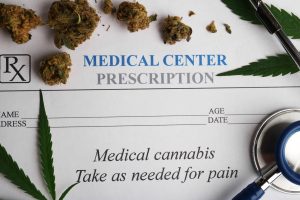Medical Cannabis, DUI, And Your Pennsylvania Driver License

On April 17, 2016 Pennsylvania became the 24th state to legalize Cannabis as a medical treatment when Governor Wolf signed the “Medical Marijuana Act.” Since the Act was passed, the Commonwealth has awarded approximately 25 grower processor licenses and about 50 dispensary licenses through the Department of Health. While the Act has addressed many concerns on the medical administration of the drug, those utilizing this treatment must understand that Pennsylvania still classifies Cannabis a Schedule I Controlled Substance. This classification, despite the legalization for medical purposes, leaves patients at risk for criminal prosecution under the Pennsylvania Traffic Code for a Driving Under The Influence (DUI) of a Controlled Substance charge.
Under the Pennsylvania traffic code, a person may not operate or be in actual physical control of a vehicle if there is ANY amount of a Scheduled I Controlled Substance, as it is defined under the Pennsylvania Controlled Substance, Drug, Device, and Cosmetic Act (See Section 3802(d)(1)(i) or the metabolite of a substance (iii). Under Paragraph 2 of this subsection (Title 75 Section 3802 (d)(2)), a person is also prohibited from driving if he or she is under the influence of a drug or the combination of drugs to a degree which impairs that individual’s ability to safely drive, operate, or be in actual physical control of a vehicle within the Commonwealth.
- The Pennsylvania Traffic Code Doesn’t Distinguish Between Legal and Illegal Drugs or Narcotics
Most people, unfortunately, assume that a driving under the influence charge in Pennsylvania is specifically reserved for alcohol or an illegal substance such as crack cocaine or heroin. It’s important to understand that the law does not distinguish between an legal or illegal substance. Medical marijuana patients therefore must understand that if they choose to drive while utilizing this drug treatment, they risk of a possible DUI arrest and conviction which could carry a driver’s mandatory jail time, a license suspension, fines and substantially increased insurance rates. It is important to understand that Paragraph 2 of Section 3802(d) specifically requires the Commonwealth to establish, beyond a reasonable doubt, that an individual was under the influence of a drug to a degree which impairs that person’s ability to drive safely but not a specific drug!
- The Prosecution Doesn’t Need Chemical Test Evidence to Obtain a DUI Conviction
Section 3802(d)(2), therefore, doesn’t require the Commonwealth to introduce any type of blood or chemical evidence to meet its burden of proof. Under this sub-section, an assistant district attorney (prosecutor) can obtain a conviction from the testimony of the arresting officer as to an individual’s physical presentation following an arrest. The prosecution does not necessarily need to produce an expert witness to testify about a person’s impairment if they can introduce testimony through the arresting officer which sufficiently addresses the issue of impairment (i.e. failure of a field sobriety test, blood shot eyes, odor of marijuana). There is a recent case in Pennsylvania where the court found that an expert isn’t necessary to establish impairment under subsection 3802(d)(2), where there exists other independent evidence of impairment. This subsection is different from the preceding paragraph (§ 3802(d)(1)) which requires that the prosecution establish the presence of a specific Schedule I drug or non proscribed Schedule II or III drug through a chemical test like a blood draw. See Commonwealth vs. Gaust, 2017 PA Super. 160 (2015)
- Blood Evidence Admissibility & Search Warrants
The admissibility of blood evidence is a hot topic in DUI defense following the United States Supreme Court decision of Birchfield v. North Dakota, where the Court found that the police needed to obtain a search warrant to obtain a person’s blood. Following this decision, Pennsylvania courts across the Commonwealth began excluding blood evidence even if the individual consented to the blood draw. Many prosecutors argued that consent eliminated the need for the warrant but PennDot’s form DL-26 (Consent For a Blood Test) became virtually unconstitutional following this decision as it violated a person’s 4th Amendment protections. See Birchfield v. North Dakota, 136 S. Ct. 2160 (2016); Commonwealth v. Evans, 2016 Super 293
Following the Birchfield decision, Pennsylvania modified its DL-26 form (DL-26B) and removed the criminal penalty language. This has made it much more difficult for a criminal defense attorney to argue that a person’s consent was unlawfully obtained in violation of the Birchfield decision. The revised form doesn’t mention criminal penalties but simply informs the individual that his or her operating privileges will be suspended for 12 months for the refusal and 18 months if they have previously refused a chemical test or was previously convicted of driving under the influence. The Pennsylvania Superior Court, in at least two decisions, has specifically held that this revised form doesn’t violate the Birchfield decision and is therefore constitutional.
A Potential Problem For Medical Marijuana Patients
Remember that the difference between a Section 3802(d)(1) charge and a Section 3802(d)(2) is that latter does not require blood evidence but does require the prosecution to establish impairment. It applies to legally proscribed and illegal drugs. The former, however, is a strict liability charge which means that the Commonwealth only has to establish that the motorist was actually driving or in operation of the vehicle and either a Schedule I drug (including medical cannabis) or non proscribed drug was in the person’s system at that time.
A medical marijuana patient is potentially guilty of a DUI if he or she is stopped for some unrelated traffic offense and the police officer discovers that the motorist has used or is currently using medical cannabis. This scenario, however, is highly unlikely if the officer had no reason to suspect that the motorist was under the influence of drugs. The scenario, however, is a possibility if following the stop, the motorist informs the officer that he or she has recently consumed medical cannabis under the mistaken belief that it could help explain the reason for a motor vehicle violation such as disregarding a stop sign or speeding. This is primary reason why I advise clients to be respectful of police but never volunteer any information and to never answer any question which the officer poses following the stop
Should Your Refuse a Chemical Test If Stopped For Suspicion of DUI?
If you’re stopped for suspicion of DUI and are using medical Cannabis as a drug treatment, understand that your prescription IS NOT a defense to a criminal prosecution for DUI. If you find yourself in this situation, here is some advice:
- You’re under no duty to disclose, nor should you disclose, that you are taking any type of medication which would include Cannabis, over the counter drugs such as Benadryl or other substances which could cause impairment.
- You are only required to provide the police officer with your license, vehicle registration, and proof of insurance.
- You are not required to answer any questions regarding what you may have consumed or the reason for traveling.
- You should never refuse a chemical test (blood or breathalyzer) because the refusal in and of itself will result in a license suspension regardless of the outcome of the criminal case. The license suspension is a civil sanction under Section 1547(b) of the traffic code as opposed to the criminal penalties under Section 3804 of the code. Your criminal defense lawyer can still make a number of arguments regarding the admissibility of the blood evidence which would include motions to suppress that evidence based on the lack of probable cause for the vehicle stop or the arrest.
If you would like more information regarding DUI defense I would encourage you to visit my website which maintains a regularly updated blog and 2 free downloadable books devoted to DUI defense.



